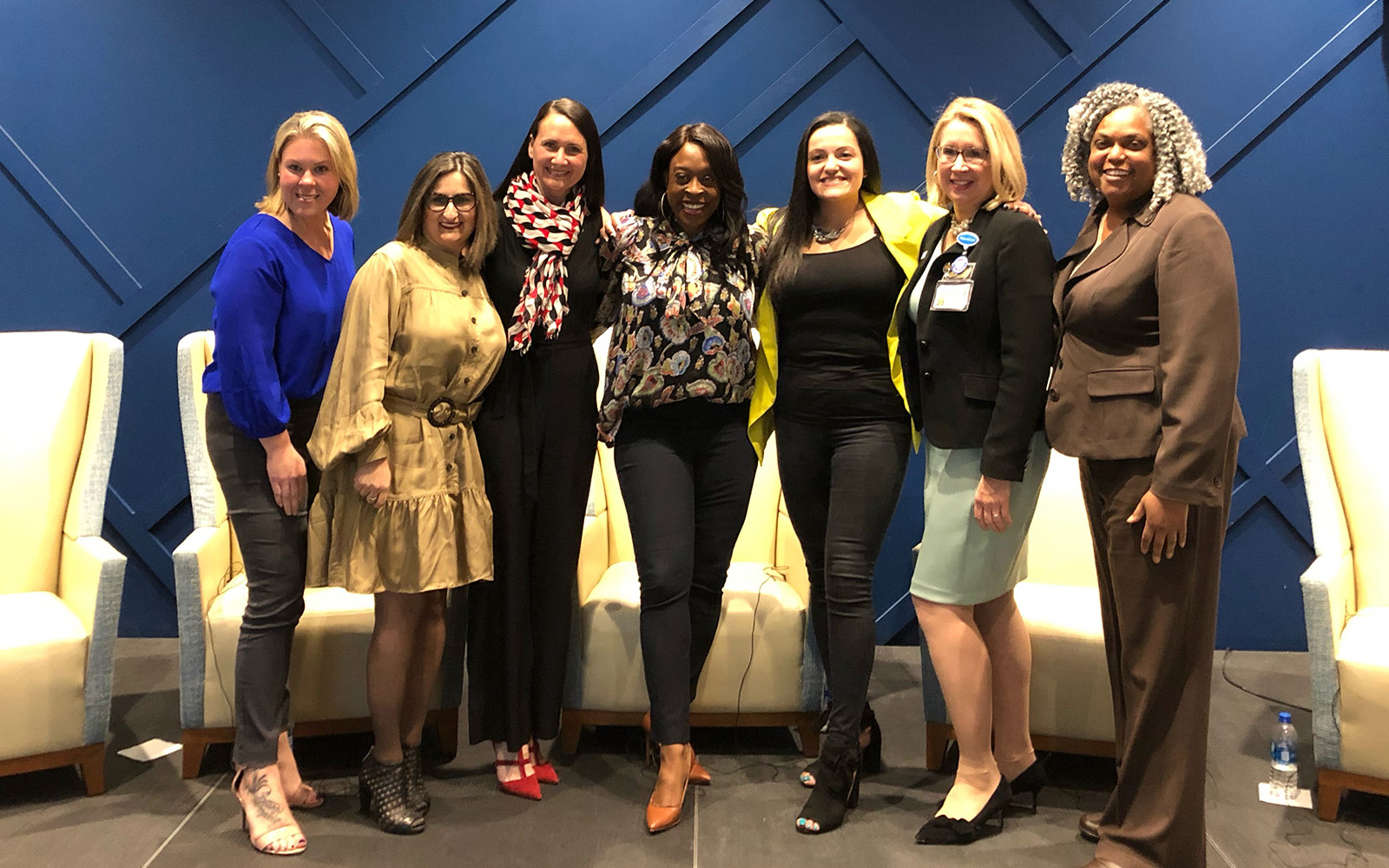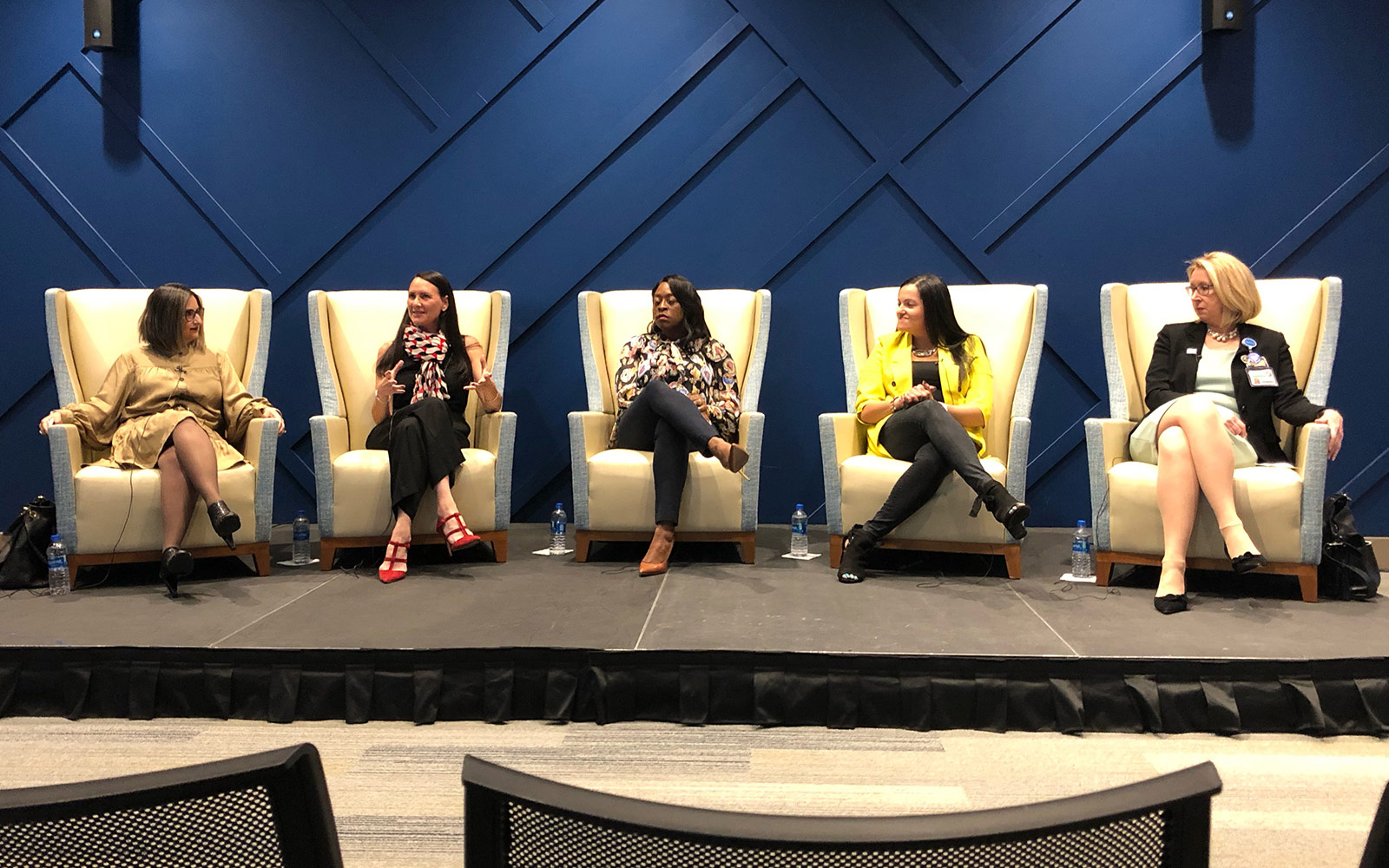
Recently, our President and Partner, Debra Rizzi, was honored to serve as a panelist on the “Women in Business” Panel at Stockton University hosted by their Women’s Leadership Council. The guests were questioned about their experiences as women in business and the hurdles they’ve faced along the way.
We are sharing the Q&A of Deb’s answers and her insights on being a female leader.
Q: What is the current climate in organizations to support the development of women in business. What are we doing well, and what do we need to improve?
A: I only worked for two companies before going out on my own – Corporate Lord & Taylor and Porter Novelli. In retail, the employee population was primarily female. However, men often held financial and senior management positions, which was discouraging to a woman looking to advance their careers in these areas.
When I moved into the public relations industry, Porter Novelli was about 90% women, which wasn’t uncommon for agencies. However, the climate was intense and sometimes even cut-throat. My female co-workers were Type A, always-on, constantly thinking on their feet to meet the demands of high profile clients. I credit my success in the industry to a combination of proactivity, thick skin, and unwavering work ethic. While it was exhausting and unsustainable at times, I would not be where I am without this experience under my belt.
As an entrepreneur, I’m lucky enough to select like-minded employees and have cultivated an agency that is 80% female. We definitely work hard, but we play hard too. Our team’s health and wellness come first, and we check in regularly to make sure everyone is on the right trajectory of where they want their career to go. In addition, we are starting the process to be WBE (woman-owned business) certified, which has been encouraged by our clients. There are many perks to being a woman-owned business, and we are excited about what the future holds once we make that transition.
Q: What have been some of the biggest hurdles that you have come up against as a woman in business, and the strategies have you used to overcome these hurdles?
A: One of the biggest hurdles I’ve faced, and I believe many other women in business have faced as well, is the notion of being UNCOMFORTABLE and knowing how to deal with it head-on. There are three different ways a woman can feel uncomfortable:
1. Unintentional – The first is when someone makes you uncomfortable, whether at work or in a personal or financial situation, in a way that they didn’t intend. It’s important to have the guts to call them out on it and let them know you aren’t comfortable with the situation.
2. Intentional – When you’re in a pitch or a board room, there is often one person that doesn’t want to be a part of the meeting or thinks you and your skills aren’t a fit or will compete with their skillset. No matter what the gender is, you can combat an uncomfortable situation by pulling them into the conversation. For example, by asking for their specific thoughts on the pitch and more detailed questions about their business and their goals can help engage them and possibly rethink their stance on your pitch.
3. Self Infliction – The third is the kind of uncomfortable that you inflict on yourself. In order to grow, we should consistently put ourselves in uncomfortable situations. This could be agreeing to speak at an event, pitching an idea you aren’t sure will be accepted by the rest of your team but you feel it is important, or simply introducing yourself to a figure you admire.

Q: What role have mentors, sponsors, and advocates played in your leadership journey?
A: Mentors in my earlier years were Tom Caputo of Lord & Taylor, Donald Burg of Porter Novelli and my printing community, Ron Assoian of Allied Printing Services, and Kevin Finn of DCC. Today, it’s the leaders of my competitors (yes, we actually collaborate!), the associations that I play a role in, and my university. Mentors have given me incredible insight into my career and life in general, and I strive to give back to young professionals in my community in the same way. In addition, I’ve served for eight years sitting on the Bucknell University Alumni Association Board of Directors, engaging with other alumni and young, emerging leaders who expose the pathway to the future.
Q: Strong women are often associated with a negative stigma in business. How have you navigated this perception, or what would you recommend to others that face this challenge?
A: You do you. It is so much easier to apologize later versus asking for permission. If you have a goal in mind, worrying about what other people think of you and striving to be “liked by all” will only get in your way.
Q: Throughout your career journey, how have you changed or developed into your more authentic self?
A: It’s an ever-changing process! I never imagined that I could turn a hobby into a business. I started judging gymnastics ten years ago as a hobby, and two years in, I was approached by Plum, a gymnastics activewear company of which I now serve as a Partner and the Vice President of Marketing. My advice would be to continue thinking, growing, and learning like you did in college, and evolution will just come second-hand.
Q: Research has shown women are often competing for limited jobs. How do we help women to empower and collaborate with one another to create a less threatening environment?
A: Networking is easily one of the most powerful tools we have at our disposal. There are so many organizations now that focus on female professionals that young women didn’t have, say, thirty years ago. One of our favorites in NJ is Professional Women in Construction (PWC). My advice would be to find a professional women’s organization in your industry and use your network to advance your career.
Q: Consider a future moment in which you will be challenged, may feel disappointment/failure, feel like there is no light ahead, and question your “why.” What pep talk would you give yourself to regain strength to continue on your journey?
A: You are always going to have ups and downs. We all hit our own “rock bottom” at some point. We hear the stories of alcohol, drugs, depression, and suicide, and each time it happens, you have to pause. Focus on your strengths, and delegate your weaknesses. Don’t be afraid to ask for help.


